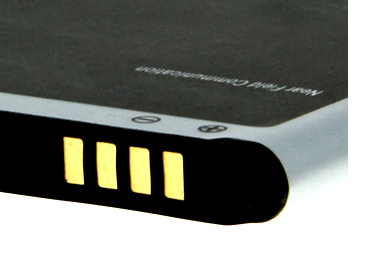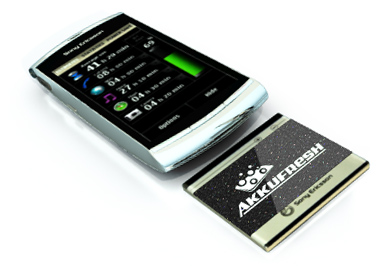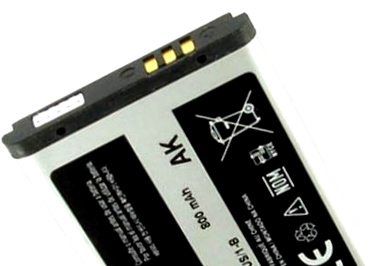Help
How to maximize the life of your battery?If you purchase a new mobile phone (or a new battery), the rechargeable battery is shipped uncharged and must be fully charged prior to its first use. The first time you charge the battery, the device may indicate a false full charge after 10 to 15 minutes. This is normal. Unplug it and plug the charger to "restart" the charging process. Several charging-discharging cycles (2-3) are required for the battery to reach maximum capacity, best performance, and hold a full charge. |
 |
 |
Keep the battery and the contact terminals clean. Battery contacts are the number one source of charging problems. Clean the battery contacts (battery + device) with alcohol and a cotton pad. Make sure no cotton is left on the contact points. Avoid letting your battery sit dormant for extended periods of time. Batteries that sit idle for lengthy periods of time without charging tend to lose their ability to hold a charge and will self-discharge. Charge and re-condition (full charge/discharge) when the battery is new or after an extended idle period. Unplug your power adaptor if you are not using your device or mobile phone. Batteries that sit idle for extended periods of time without charging begin to lose their ability to hold a charge and will self-discharge, so remember to charge them again before use. |
|
Avoid using a cigarette-lighter adaptor for charging your battery, if you can. The battery can be damaged and its performance reduced by the use of cigarette-lighter adaptors, which do not properly regulate the incoming current. Always store batteries in a cool, dry place away from heat and metal objects. You can increase your actual battery life by removing some features, user options, and accessories that you do not really need: for mobile phones, remove or switch off GPRS, Bluetooth, backlight, ring volume, vibration mode, etc... For optimal performance, it is recommended to use genuine batteries made by the device manufacturer. |
 |
 |
Avoid exposing the battery to extreme heat, sun, and cold. Depending on your battery type, overcharging or undercharging could result in a shorter life. Due to the chemical processes involved, batteries deteriorate over time. After a certain number of cycles, the battery's maximum charge capacity drops to below 80% of its original capacity. If you do not fully discharge the battery before recharging it, the capacity of the battery will gradually be reduced. This is called the "memory" effect and is due to the accumulation of gas bubbles on the cell plates. NiCad batteries are especially prone to this problem, therefore users should try to discharge the battery fully after each use, a process called "conditioning". NiMH batteries are less susceptible to the memory effect, but even then you should condition them once every one to two weeks. Li-ion and Li-Po batteries are immune to the memory effect. |
|
Safety Precautions - While Charging a Battery
Danger
Warning
Caution
Safety Precautions - While Using the Battery
Danger
Warning
Caution
|
